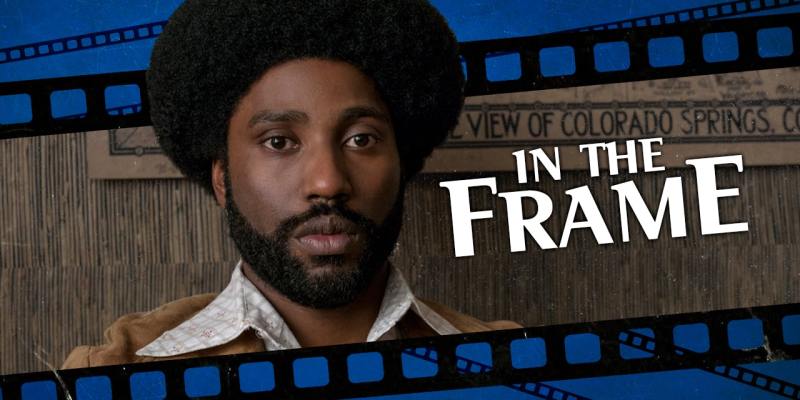This article contains minor spoilers for Spike Lee’s Da 5 Bloods.
Da 5 Bloods has been released on Netflix today. Taken together with Lee’s previous film, BlacKkKlansman, it makes a compelling argument for the importance of allies and empathy.
Spike Lee is a defining American director. Do the Right Thing, Malcolm X, 4 Little Girls, and his first theatrical film She’s Gotta Have It have all been added to the National Film Registry in the Library of Congress. He has been described as “the first African American director to become a household name.” Ron Stallworth, whose story inspired BlacKkKlansman, called Lee “a national cultural treasure.”
Lee is an impassioned and avowed political filmmaker. “Spike Lee really gave us a platform, men and women of color,” argued BlacKkKlansman star John David Washington. While Lee is not exclusively political, capable of producing more conventional genre fare like Inside Man or the Oldboy remake, a lot of his filmography offers a charged exploration of the African American experience. (Even Inside Man and Oldboy tie into Lee’s recurring fascination with the importance of interrogating the past and the way it impacts the present.)
Much of Lee’s work bristles with a righteous and justified frustration at a system that is fundamentally broken. There’s a palpable exhaustion and candor that informs films like Do the Right Thing or Bamboozled. (This forthrightness carries over to his cultural critiques, with the director refusing to mince words when sharing his opinions of Quentin Tarantino or Green Book.)
This frustration and disillusionment has occasionally led film critics to label Spike Lee as angry or provocative. Do the Right Thing caused a minor controversy when it premiered at Cannes in May 1989. “(T)here was pressure put on Tom Pollock, who was then the president of Universal Pictures, not to release it,” Lee recalled, citing fears that it might inspire race riots.
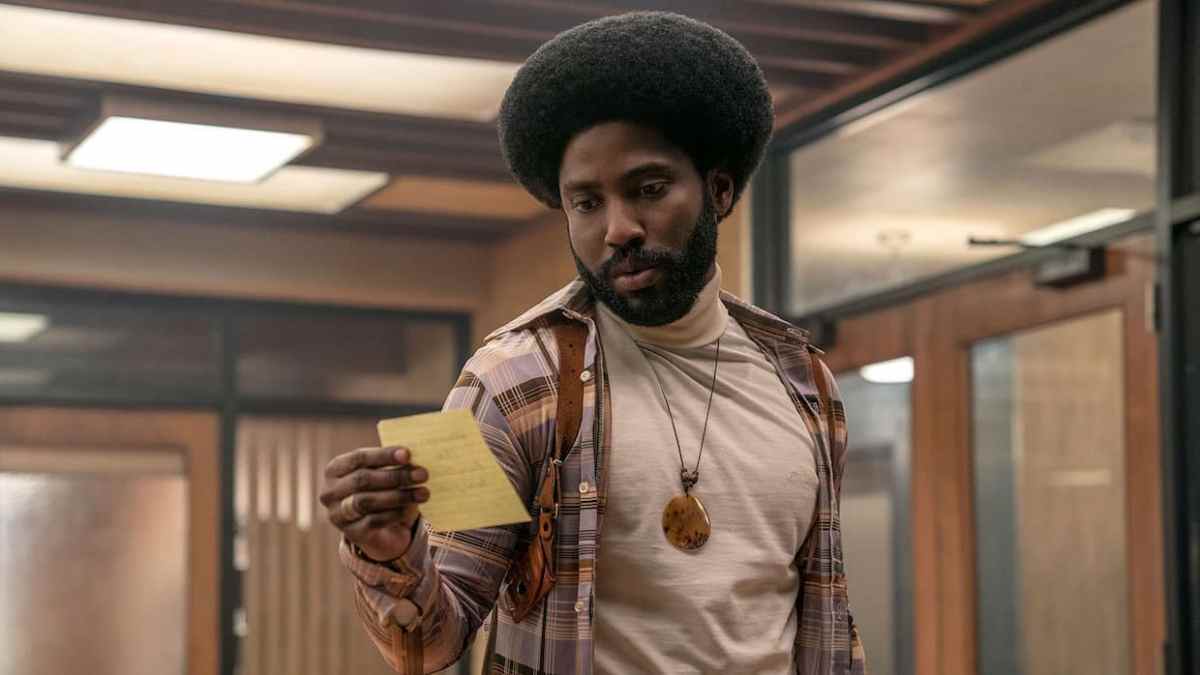
David Denby at New York Magazine accused Lee of wanting to be seen as “an angry man” by stoking racial tensions. In the same publication, Joe Klein decried a sequence of Mookie (Lee) starting a riot by throwing a trash can through a store window as “one of the stupider, more self-destructive acts of violence [he’d] ever witnessed.” Terrence Rafferty accused Lee of “bullying the audience.”
In hindsight, Do the Right Thing has rightly been acknowledged as a classic, with Jason Bailey calling it “one of the few truly great films of the 1980s.” Still, the labels stuck. “Because he is black and deals with anger, he has been categorized as an angry man,” contended film critic Roger Ebert in his Criterion essay on the film.
Indeed, this skepticism of the “angry man” label applied to the filmmaker has been borne out in his recent films. In a time of increased polarization and heightened political tension, Lee has doubled down on the importance of empathy and compassion. Both BlacKkKlansman and Da 5 Bloods present themselves as the cinema of allyship.
BlacKkKlansman is loosely based on the true story of Detective Ron Stallworth (Washington), the black man from Colorado Springs who went undercover to infiltrate a resurgent Ku Klux Klan. Naturally, the idea of an African American infiltrating an avowedly racist organization is inherently absurd, and not something that Ron can do on his own. Ron needs help.
Ron needs somebody who can pass as white to meet with the Klan. It’s a hairbrained scheme, but as Ron assures Chief Bridges (Robert John Burke), “With the right white man, we can do anything.” So, Ron enlists Detective Philip “Flip” Zimmerman (Adam Driver) to do the leg work, along with fellow officers Jimmy Creek (Michael Buscemi) and Sergeant Trapp (Ken Garito).
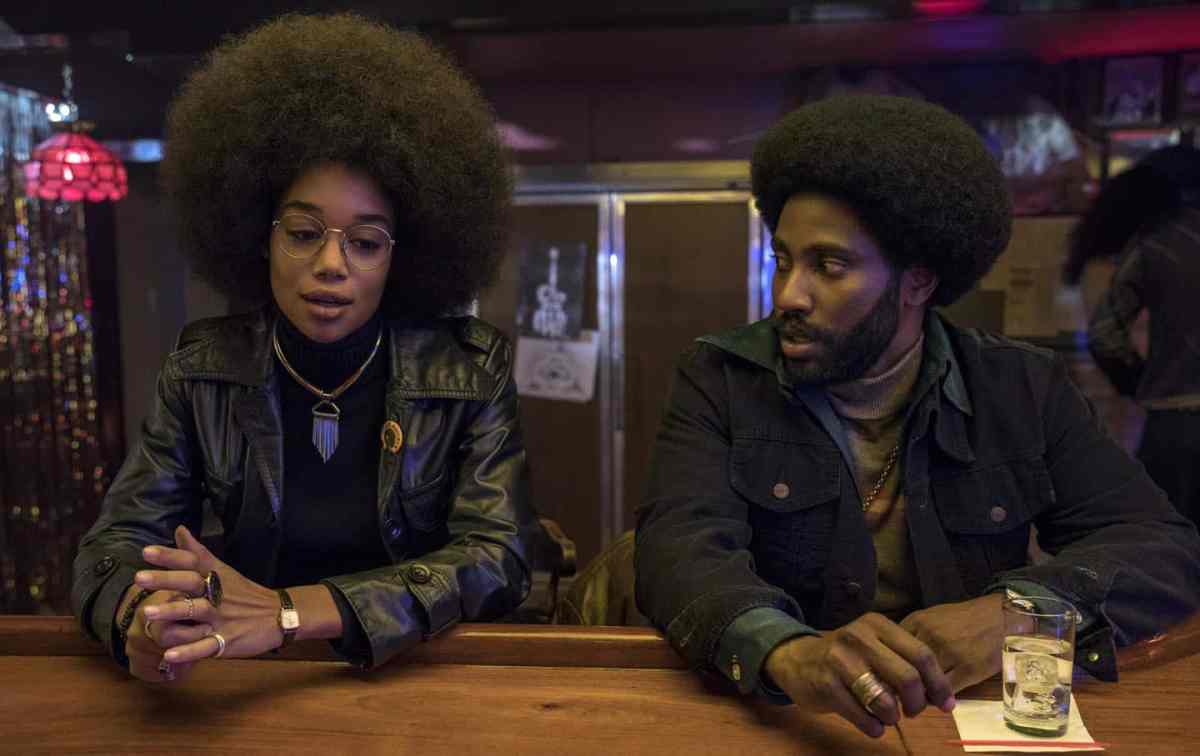
Flip is initially hesitant to invest in the operation, despite the Jewish heritage that makes him just as much an object of hatred for the Klan. “Why you acting like you ain’t got skin in the game, brother?” Ron demands. “I’m Jewish, but I wasn’t raised to be,” Flip eventually concedes. “I never thought much about it; now I’m thinking about it all the time.” Forced to confront that reality, Flip connects with Ron. They truly become two facets of a fictionalized Ron Stallworth, their experiences mirrored.
The growing bond between Ron and Flip is juxtaposed with friction within the Klan. Felix Kendrickson (Jasper Pääkkönen) has little patience for his wife Connie (Ashlie Atkinson) or the “mealy-mouthed Walter” Breachway (Ryan Eggold) who heads this branch. Towards the end of the film, the crowd of allies around Ron’s desk is contrasted with the empty space around that of David Duke (Topher Grace).
Nobody gets there alone. In a film that is very much invested in the African American experience, Lee makes a point to acknowledge the importance of allies. The film is dedicated to Heather Heyer, the white woman murdered protesting Neo-Nazis in Charlottesville in August 2017. It sincerely believes Kwame Ture (Corey Hawkins) when he pledges, “All power to all the people.”
This belief carries over to Da 5 Bloods, which is built on a familiar war movie template. Four Vietnam veterans return to the country to repatriate the remains of their deceased commanding officer, but also hoping to recover a crate full of gold that they buried during the war. Naturally, tensions flair within the group about how best to use the money and whether to share it.
Paul (Delroy Lindo) is the veteran most traumatized by his military service and who most adamantly refuses to share his earnings. “You do for self,” he warns the soft-hearted Eddie (Norm Lewis) in an argument over whether the gold brings with it any greater obligation. Inevitably, Paul decides to go it alone. He packs up his share and marches off into the jungle by himself. He does not get far.
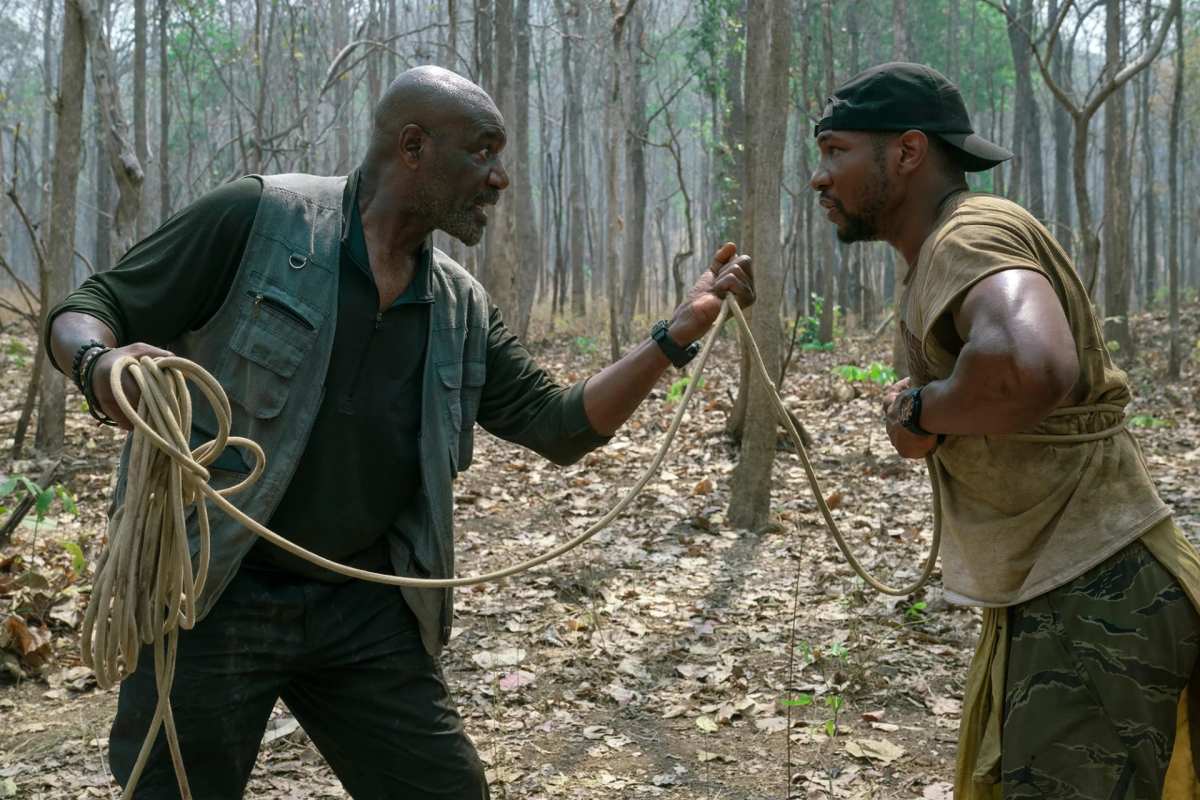
In contrast, the remaining members of the group ultimately survive by building an unlikely and diverse coalition. Although only four members of the squad arrive in Vietnam, their ranks swell to include a diverse array of individuals. Vinh (Johnny Trí Nguyễn) is the son of a Vietnamese soldier. Hedy (Mélanie Thierry) is a French woman haunted by guilt over her family’s legacy in the country.
“Five bloods don’t die,” asserts the team’s medic (and beating heart) Otis (Clarke Peters) at various points in the film, “they multiply.” The film initially presents this as a boast of virility, but it becomes a more profound philosophical statement. As the individual shares of the recovered gold get smaller, the group grows stronger. Da 5 Bloods takes a familiar war movie template and infuses it with a surprisingly warm humanism.
Both BlacKkKlansman and Da 5 Bloods are cinematic arguments for the need to build progressive coalitions, to establish consensus, and to act with empathy. Roger Ebert very famously described cinema as “the most powerful empathy machine in all the arts,” and Lee is very much operating within that framework. More than that, Lee is doing something quietly radical.
Lee is a cinematically literate director. Even within BlacKkKlansman and Da 5 Bloods, characters will often detour into discussions of the genres in which they find themselves. Ron will debate the merits of blaxploitation on an afternoon stroll with Patrice (Laura Harrier), while Eddie openly ridicules the tendency of “Hollyweird” to restage the Vietnam War, offering an American victory denied by reality.
Both BlacKkKlansman and Da 5 Bloods are aware of the power of cinema and understand that this power has not always been used for good. In a sequence that echoes one of this week’s controversies, BlacKkKlansman opens with footage from Gone with the Wind, that epic pull back to a tattered Confederate flag, acknowledging the film as a cinematic monument to the Lost Cause.
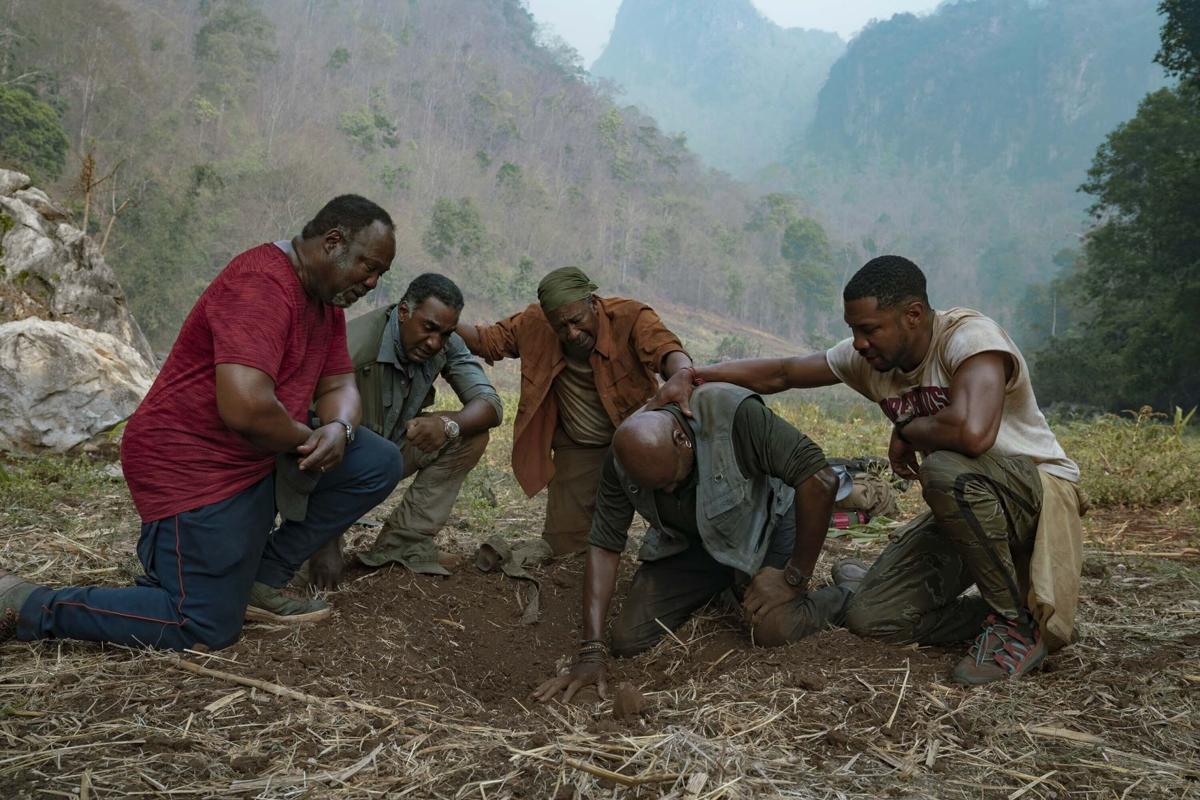
One powerhouse sequence in BlacKkKlansman juxtaposes a history talk from Jerome Turner (Harry Belafonte) with a screening of The Birth of a Nation by the Klan. Jerome recalls the horrific lynching of Jesse Washington in May 1916. This is a real and well-documented event. BlacKkKlansman plays it against the mythologized history offered by Birth of a Nation.
In both cases, the film underscores the power of imagery. Jerome recalls how images of Washington’s burnt body were used to terrorize African Americans. “Those pictures were later sold as postcards,” he explains. He also explains that the mob was inspired by the popularity of The Birth of a Nation. “Today they call that kind of movie a blockbuster,” he muses.
Images matter. Films create a mythology. Jerome slightly misquotes President Woodrow Wilson’s alleged assertion that The Birth of a Nation was “like writing history with lightning.” Whether or not Wilson ever actually said those words, Birth of a Nation almost single-handedly revived the Ku Klux Klan by painting them as heroes of a post-Civil War South. That is power.
With BlacKkKlansman and Da 5 Bloods, Lee offers an alternative to that cinematic mythology. He uses the power of cinema to present a vision of the world built on empathy and understanding rather than on hate and fear. Lee has a platform. BlacKkKlansman is Lee’s second highest-grossing film, by some margin. Da 5 Bloods arrives on Netflix with a larger subscriber base than ever.
Lee should not be mistaken for a romantic. Both BlacKkKlansman and Da 5 Bloods demonstrate a real anxiety about the state of contemporary America. BlacKkKlansman even ends on an image of an inverted American flag, which is (officially) “a signal of dire distress in instances of extreme danger to life or property.” However, there is also real hope in the prospect of people coming together.
Lee remains as committed to the ideal of a more equal and just society as ever. “If I am not for myself, who will be?” demands Kwame Ture of a crowded lecture hall in BlacKkKlansman. However, the film understands that Ture’s next question is just as important: “If I am for myself alone, who am I?” Nobody gets anywhere alone, but people can accomplish anything together.
